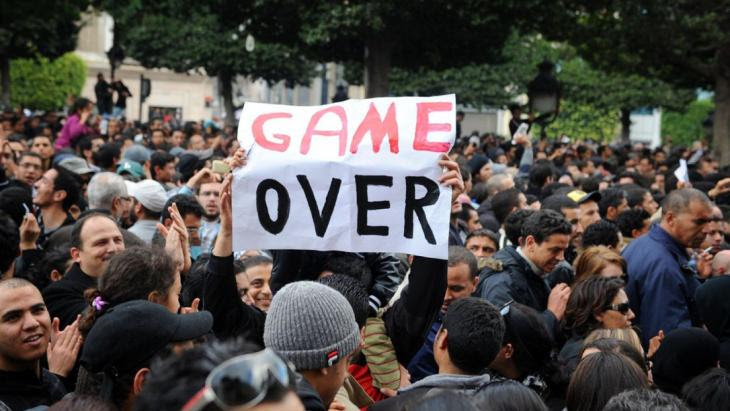Qantara.de
Not much remains of the euphoric mood and the hopes that drove the Arab Spring. A return to pre-2011 conditions is however out of the question. Commentary by Loay Mudhoon
A brief glance at the political map eight years after the revolutionary dynamism that carried the Arab Spring movements should be enough to see that there is not much left of people’s hopes for a life led in democracy and dignity.
Instead of “bread, freedom and social justice”, the outbreak of the Arabellion – the largest mass mobilisation of Arab peoples in recent history – was followed by chaos and destruction on a grand scale: Libya is facing the threat of collapse; the United Nations today describes the situation in Yemen – the poorhouse of the Arab world – as the world’s largest humanitarian catastrophe. In Egypt, an unnerving, deceptive and deathly peace prevails.
At the same time, several flux-nations have mutated into arenas, venues for the staging of regional conflicts. After years of brutal fighting along purportedly confessional lines, the complex Syrian conflict has become a regional and international proxy war. What began as a peaceful popular uprising against the brutal tyranny of the Assad clan is now a global conflict.
Only in Tunisia, the motherland of the Arabellion, might the transition from dictatorship to democracy succeed, if, that is, the nation manages to get its economic problems under control. It goes without saying that the West should continue to nurture and support the Tunisian democracy model.
Authoritarian reinstatement
But how did it come to this? Why does so little remain of the euphoria of the Arab Spring, of the hope for a better life in freedom and dignity? There’s certainly a multitude of reasons – primarily arising from the legacy of the dictatorship and less from the culture of the nation in question. In order to fully understand this development, we need to remember one thing: The Arabellion did not trigger the crisis facing Arab nation states – it revealed it.
Expansion of the conflict zone: after years of brutal fighting along purportedly confessional lines, the complex Syrian conflict has become a regional and international proxy war. What began as a peaceful popular uprising against the brutal tyranny of the Assad clan is now a global conflict.
The main cause of the crisis has been the colossal failure of the ruling (military) elites to promote modern statehood. After all, these elites control the state’s weak institutions as well as its resources, all too often using them to further their own interests. They have gradually disconnected themselves from the everyday lives of regular Arabs, from the woes of the majority of the population. The revocation of the social contract, first and foremost in Egypt, has again turned out to be devastating for the identification of Arab citizens with the state.
And so, over the course of time, almost all “republics of fear” have not only become economically weaker, but also more repressive. Furthermore, Islamist parties have evolved into a counterweight within the state, while impeding development on a human level.









